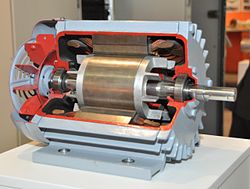Everything you should know about HVAC
The importance of HVAC
Heating, ventilation, and air conditioning (HVAC) is the technology of indoor and vehicular environmental comfort. Its goal is to provide thermal comfort and acceptable indoor air quality. HVAC system design is a subdiscipline of mechanical engineering, based on the principles of thermodynamics, fluid mechanics and heat transfer.
As was mentioned earlier, an HVAC system is intended for thermal control of areas as well as comfort for occupants. Temperature is factor that affects the performance and health status of many systems. Take the case of a server room temperature as an example for which high temperature adversely affects the system’s reliability and operation of the servers is a great source of heat generation; therefore, it is important to have an HVAC system that keeps the temperature at a desired point.
At linquip website, we have taken a closer look at the HVAC device and provide you with comprehensive and up-to-date information about this critical device. So visit our website. see more
The components of HVAC
HVAC is used in various places, such as home and transportation systems. The main task of the HVAC conditioner is generally to create proper ventilation and heating in office, residential and industrial environments.
Do we need to know about HVAC system components? Well, HVAC systems are intended not only to adjust the thermal conditions of an area (mostly indoor), but they also bear the responsibility of delivering clean air to provide comfort in the environment when needed. Therefore, it would be quite beneficial actually to know some basics about their components, not only to appreciate the engineering art put into them, but also be able to identify easier what might your system need to work as you wish. more information
What is an HVAC Economizer?
As can be deduced from the name, an HVAC economizer would be a device that enhances the economy of using the HVAC system. An economizer is placed withing the exterior parts of the HVAC system, most often on the rooftop of the facility or property.
Air-side economizers can reduce HVAC energy costs in cold and temperate climates while also potentially improving indoor air quality, but are most often not appropriate in hot and humid climates. With the appropriate controls, economizers can be used in climates which experience various weather systems. For information on how economizers and other controls can affect energy efficiency and indoor air quality in buildings, see the US Environmental Protection Agency report, "Energy Cost and IAQ Performance of Ventilation Systems and Controls Study.
References:





Comments
Post a Comment